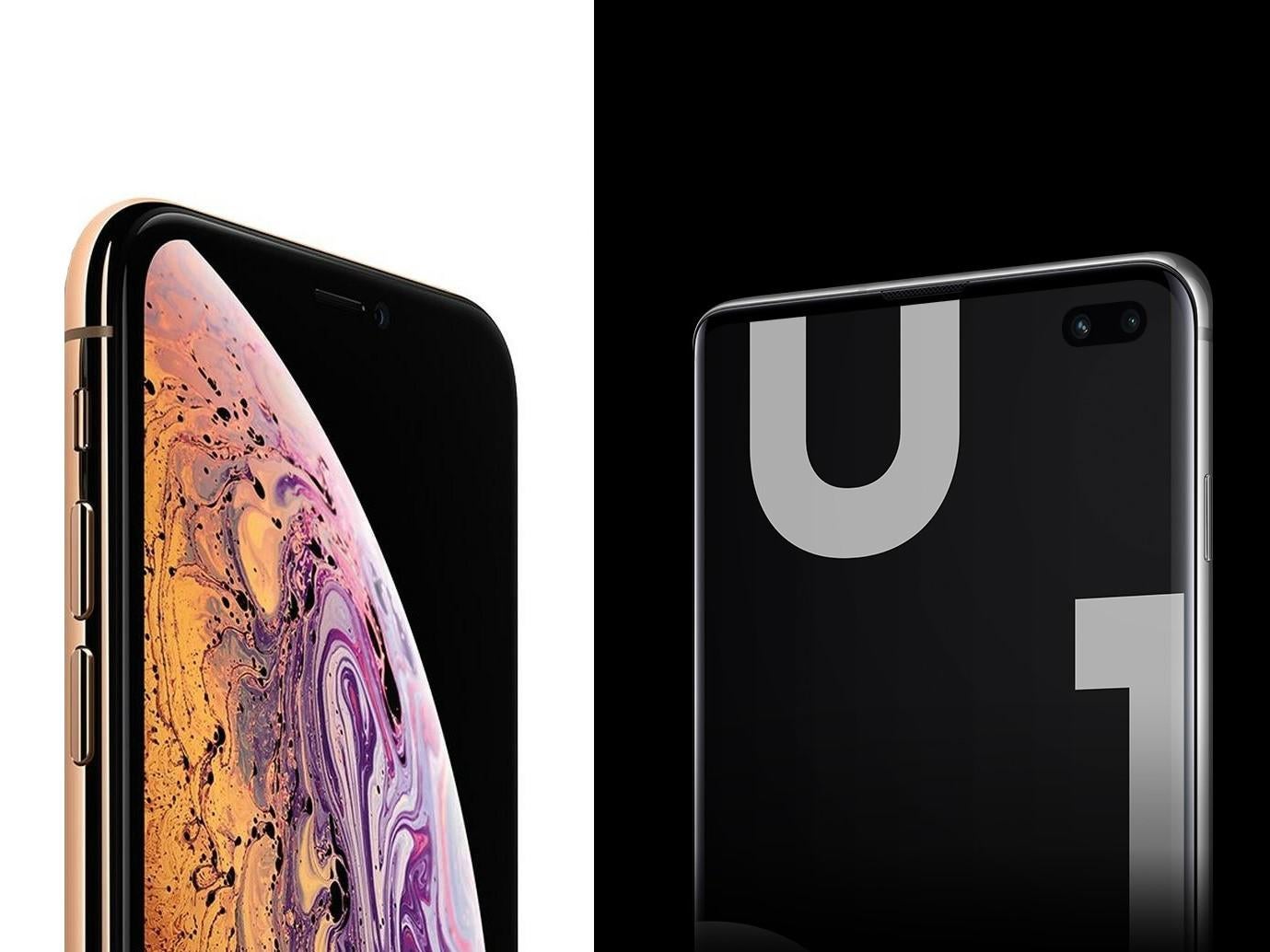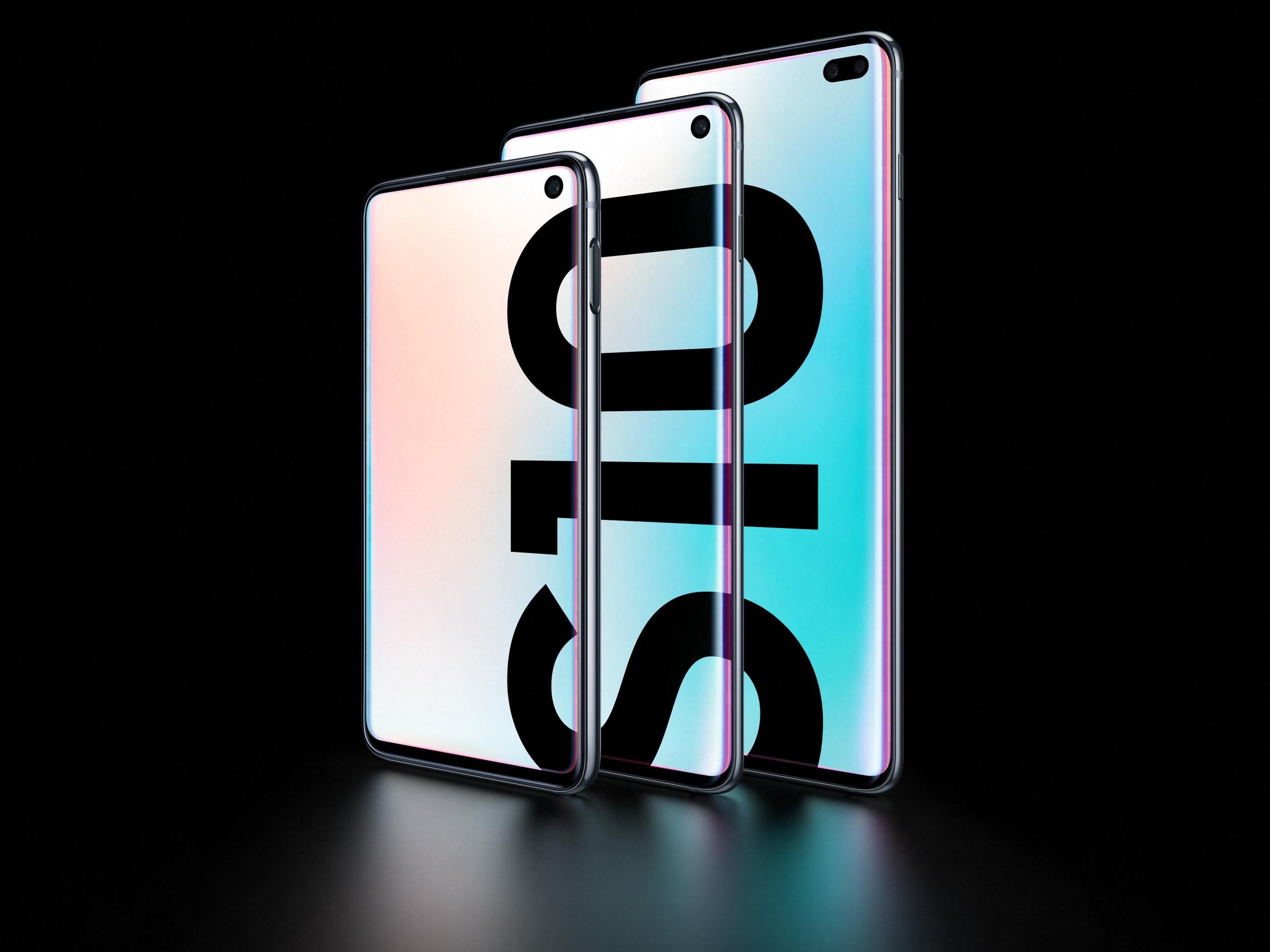Galaxy S10 vs iPhone XS: How does Samsung's latest phone match up to Apple's best?
Side by side, how do the Android and iOS flagships compare in terms of size, price, camera and specs
Samsung has thrown down the latest gauntlet in its decade-long duel with Apple, unleashing three new smartphones that it hopes will compete against the latest iPhone range.
The entry-level Galaxy S10e and higher-end Galaxy S10+ each offer something different in terms of size, specs and price but it will be the flagship Galaxy S10 that goes directly toe-to-toe with Apple's iPhone XS.
Six months separate the launch cycles of the Android and iOS flagships, technically giving Samsung the edge when it comes to delivering the most state-of-the-art smartphone.
But how do they match up when lined up side by side? Here is a full run-down of how the two phones compare.
Screen
All three versions of each smartphone come in different sizes but the standard models are roughly the same size.
The iPhone XS clocks in slightly smaller than the Galaxy S10, measuring 5.8 inches compared to the 6.1-inch Samsung.
Compared to early generations of the phones, both represent a significant step up in size.

The original iPhone in 2007 measured just 4.5 inches, with Steve Jobs famously saying "no one's going to buy" a big phone.
Anyone looking for a compact high-end smartphone will find themselves severely limited in 2019, forced to choose between regressing to the iPhone SE or going for the Sony Xperia XZ2 Compact.
Camera
The iPhone XS sports a dual-lens 12-megapixel camera, offering an incremental improvement on the iPhone X.
In contrast, Samsung has gone for significant leap forward with its camera, adding an additional lens to make it a triple-lens setup on the rear.

On top of a 12MP lens, the Galaxy S10 comes with an ultra-wide lens and a telephoto lens.
Internal specs
Both the Galaxy S10 and iPhone XS feature top-of-the-line processers, with the Qualcomm Snapdragon 855 and A12 Bionic respectively.
When it comes to storage, however, the Galaxy device defintely has the edge.
The iPhone XS can hold up to 512GB of internal storage, just like the Galaxy S10, but has no option for expandable storage.
In contrast, the Samsung smartphone can add an additional 512GB of internal storage – boosting it to a whopping 1TB of storage capacity.
Battery life
The Galaxy S10 comes with a 3,400mAh battery, though it's difficult to say how this will translate to real-world useage.
Apple doesn't disclose the size of its iPhone XS battery, though claims it holds 30 minutes more charge than its predecesser.
While both support wireless charging, the Samsung goes one step further with the addition of reverse wireless charging, meaning Galaxy S10 owners can share their battery life with other compatible devices.
Special features
The Galaxy S10 comes with a few stand-out features, including an in-screen fingerprint scanner and Fast Wireless Charging 2.0.

A hole-punch design to fit the front-facing camera on the screen also sets the Galaxy S10 apart from its rival, which features a notch design.
Price
The Galaxy S10 is available from £799 for the 128GB model, rising to £999 for the 512GB version.
Despite being older, the iPhone XS is still more expensive than the Android alternative.
The most basic iPhone XS starts at £999 and goes all the way up to £1,349 for the top-of-the range model.
Join our commenting forum
Join thought-provoking conversations, follow other Independent readers and see their replies
Comments
Bookmark popover
Removed from bookmarks